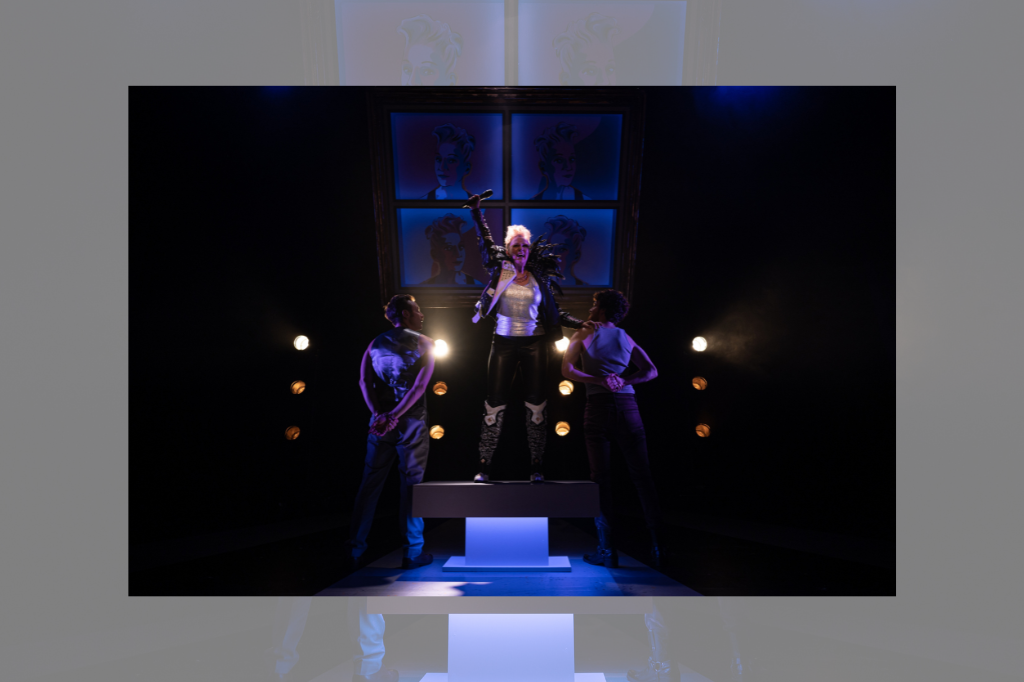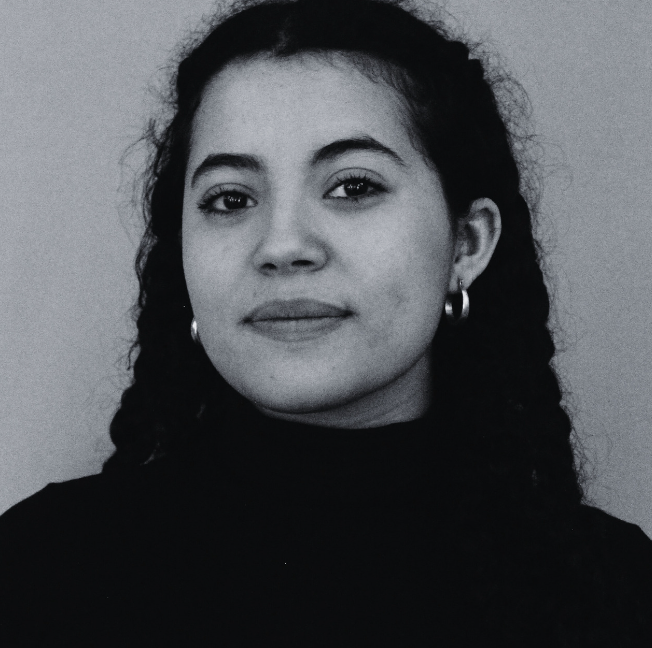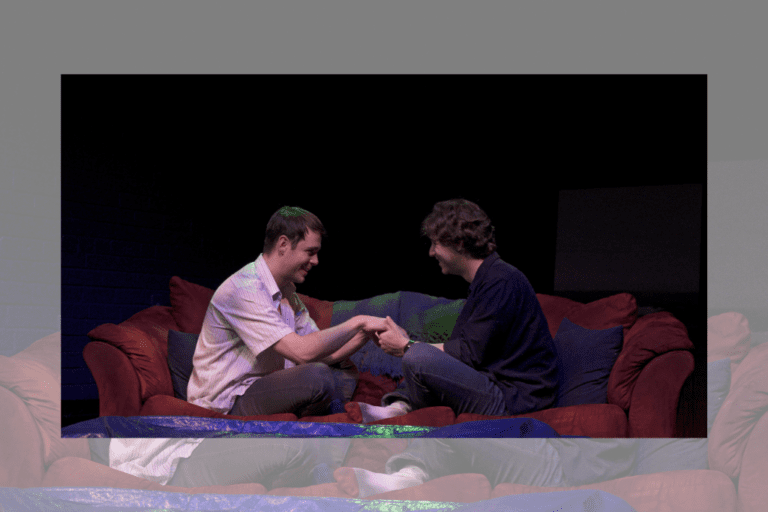REVIEW: ARC’s Rockabye glows but over-saturates
Ah, 2008. Casual homophobia was in, the first Twilight movie was released, and Angelina Jolie gave birth to twins to the world three years after adopting her daughter from an Ethiopian orphanage.
Enter: Rockabye.
Written and set in 2008 by Australian playwright Joanna Murray-Smith, ‘80s popstar Sidney (Deborah Drakeford) is well past her best-before date in the eyes of the world. Frankly, no one seems to care about her. Yes, she’s surrounded by a sleazy manager (Sergio Di Zio), patient assistant (Julie Lumsden), and rock groupie boyfriend (Nabil Traboulsi), but they all have something to gain from her company. They’re all still in Sidney’s life because she’s either paying them, advancing their career, or allowing them to mooch off her rapidly disappearing fortune. No one loves her just for her. With her new album out, Sidney’s success hinges on Tobias Beresford (Christopher Allen), the only reporter who will take on her story. Sidney though, much to her manager’s dismay, is preoccupied with a different pursuit: a baby. More specifically, an orphan from Africa. Layla (Shauna Thompson), the adoption agency worker assigned to the case, holds Sidney’s and that baby’s fate in her hands.
There are lots of things about this show that really glow.
Jackie Chau does a beautiful job with sets and costumes. Above the Factory Theatre Mainspace stage is a huge, golden frame showcasing Sidney in an Andy Warhol-esque pop art piece. The piece is very Orwellian and is omnipresent throughout the performance, showing how none of these characters are ever away from Sidney’s glare and influence. The design of the rest of the sets and costumes follow the colour palette of that art piece, creating a bright, cohesive look. The pop art encapsulates both the strengths and faults of this piece: bright, feisty, and unfortunately oversaturated.
Don’t get me wrong, Rob Kempson is an excellent director. Rockabye is meticulously blocked, and I especially appreciate the dynamic images created through casual conversation. Actors splay out on the floor while eating chips, and they offhandedly hang upside down off couches. The actors are physically alive while having politically-charged yet personal conversations. The script, direction, and actors often come together to create explosively funny scenes. It’s electric.
The transitions between scenes are filled with loud ‘80s synth music and colourful flashing lights. It’s super fun, I’ll admit, and the first couple of transitions are effective. But, too much candy will make anyone sick, and alas, the transitions eventually become tiring between every scene.
My main issue with Rockabye is that the script is longer than it needs to be, with the production clocking in at 2 hours and 45 minutes (including an intermission). At a certain point in both acts Murray-Smith makes her point but continues barreling on, overexplaining for audiences who could make these conclusions themselves. Especially with such an energetic show, the length feels taxing.
In any case, this is not a deal-breaker, especially when executed by such a top-notch cast. A special shout-out goes to Di Zio for pulling off a manager who is quite frankly scene-stealing — he plays tacky hilariously well with electrifying energy and excellent comedic timing. Drakeford plays Sidney with a very Blanche Dubois-esque air. She drapes herself over furniture much like the bright silk costumes she wears, while still maintaining truth and emotion in her performance: I really sympathize with her character and the desire she has to have a child (even if motherhood might not be the best fit for her).
The ensemble showcases its power in the high-energy, comedic scenes, but also in the tension that comes in the second act. I especially loved an intimate scene between Tobias and Layla in which they discuss the politics of wealthy white women participating in international adoption. Their performances are beautiful. It’s very familiar, and very human, and makes me think about how when these kinds of political and ethical conversations happen in real life, they are often between loved ones, naked bodies, fighting, dressing, and then loving again.
Rockabye, though a little longer than it should be, raises many timely questions. Should real lives be valued over ideologies or the other way around? Is it ethical to let someone die for a political cause? These questions alongside explorations of race and feminism are pretty expertly executed by a well-rounded, energetic cast and smart design. ARC’s Rockabye doesn’t give any clear answer to these questions and themes, and it’s a choice that more often than not, works.
Rockabye runs at Factory Theatre until February 11. Tickets are available here.
Intermission reviews are independent and unrelated to Intermission’s partnered content. Learn more about Intermission’s partnership model here.















Comments